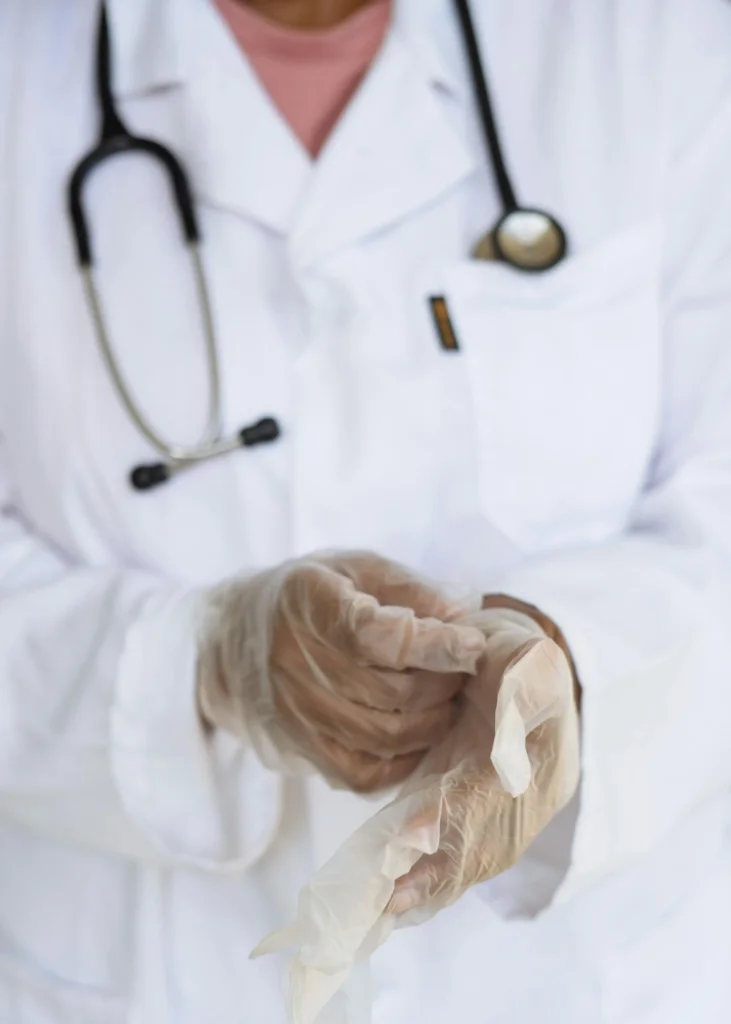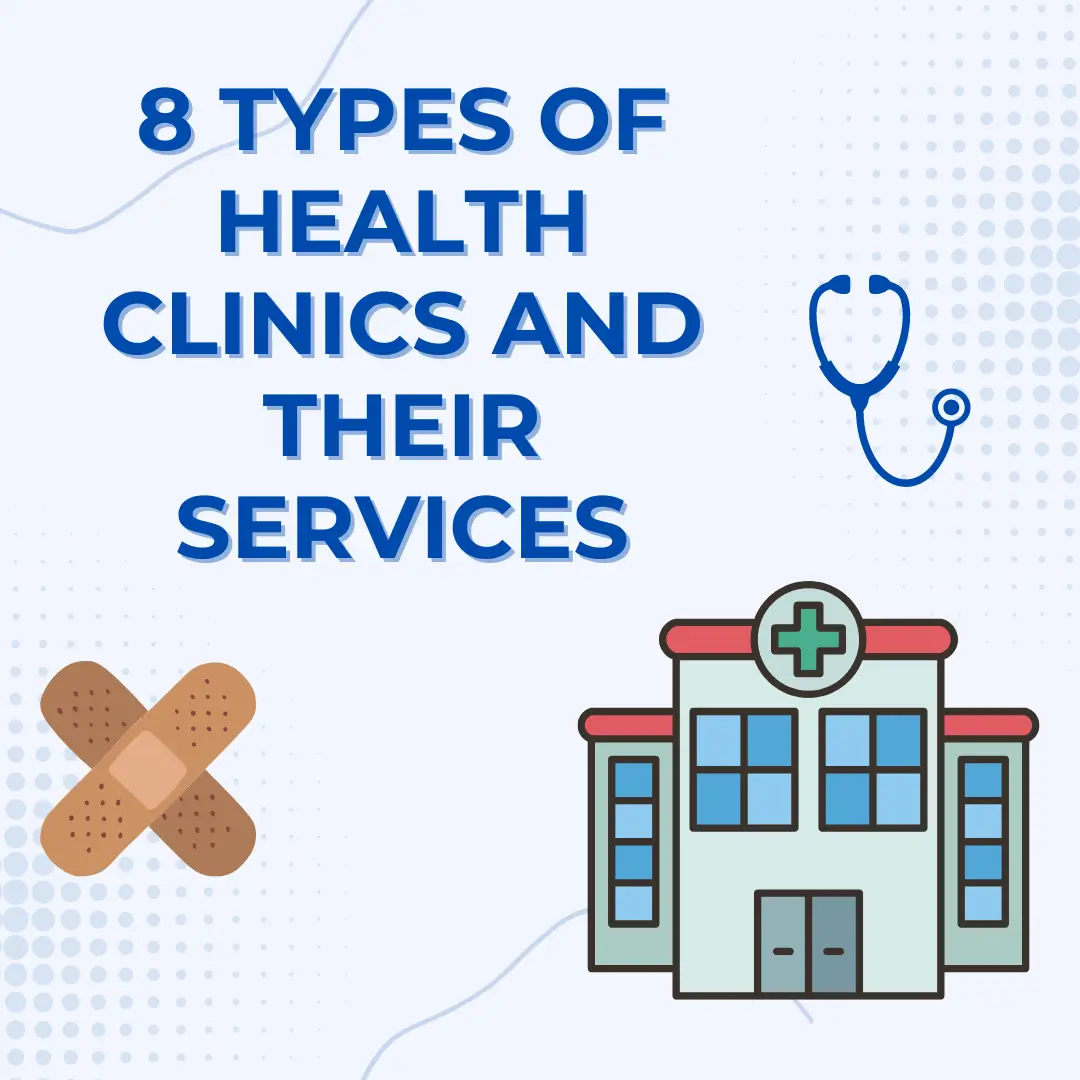9 Types of Health Clinics and Their Services
Health clinics are places where you can go to get medical care. There are many types of health clinics, so if you need to visit one, make sure you know where to start. They can be standalone practices, part of a hospital, or even located inside retail stores. From general medical care to specialized treatments, these health clinics cover a vast range of services.
In this guide, we will discuss the different types of health clinic services they provide to meet the individual needs of patients.

Different Types of Health Clinic Services
Primary Care Health Clinics
General practitioners are physicians who mainly work in primary care clinics and give out routine services. This can include physical check-ups, immunizations, some tests, and management of simple ailments. Such services are vital in maintaining the health of people which provides early medical attention and fulfills most healthcare demands efficiently.
Specialized Health Clinics
These are clinics established to address particular health issues for instance heart ailments, skin disorders, or joint pains. They have personnel who are specialized in these matters. Patients get comprehensive assessments, personal management, and follow-up care according to their conditions. Some of the specialized clinics include cardiology, dermatology, and orthopedic clinics which aim at delivering quality health care to patients with certain health problems.
Mobile Health Clinics
A mobile clinic is a vehicle that is equipped with medical facilities to deliver care and treatment services to various centers. Currently, there are roughly two thousand trusted mobile clinics in the U. S. They target individuals who have transportation, financial, insurance, or language barriers to accessing healthcare. In general, mobile clinics provide simple and primary care but can also include emergency, children, mental, dental, and continuing care.
Retail Health Clinics
Retail health clinics are small medical clinics located within some retail outlets like Walmart, CVS, or Walgreens. There is no need to schedule an appointment in advance and you can just show up and be seen by a nurse practitioner or a physician assistant. They manage simple illnesses such as flu, ear infections, or skin conditions, administer vaccines, and do routine health checks. These clinics are useful for basic and cheap services when one cannot access an attendant doctor.
Mental Health Clinics
Mental health clinics are specialized facilities with the main aim of diagnosing and managing mental disorders. They possess clinical social workers and counselors, psychiatrists, and other personnel who provide counseling, therapies, and psychiatric services. Such clinics offer one-on-one or group counseling, medication administration, and help mentally ill patients who seek their services.
Rehabilitation Health Clinics
Rehabilitation clinics focus on clients who are undergoing some sort of healing process from surgeries, injuries, or chronic conditions. They have a staff of occupational therapists, physical therapists, and other staff that specialize in designing individual rehabilitation plans. The goal of these programs is to increase client’s range of motion, achieve maximum medical improvement, and make them better as they go through their rehabilitation process.
Women’s Health Clinics
Women’s health clinics are facilities that offer comprehensive medical care that is specific to women. They offer services such as family planning, gynecological exams, prenatal care, and support for reproductive health issues. They also offer screening for breast health, counseling on menopause, as well as sexual health and relationship issues for women. These clinics play a crucial role in enhancing and preserving women’s health across different life cycles.
Rural Health Clinics
Rural health clinics deliver basic health care services to patients who reside in rural regions. This type of center includes primary and preventive care for beneficiaries of Medicare, Medicaid, or private health insurance. These clinics help the residents to have access to required medical treatments and support such as diagnosing and treating diseases. Due to establishing a workforce of individuals in the healthcare profession, rural health clinics serve the role of providing healthcare to patients who are located in areas that are hard to reach.
Community Health Clinics
A community health center is a clinic that is funded by the government and it is run by the people of the community. Its goal is to make healthcare accessible in regions that have scarce access to health facilities. Such centers need to fulfill certain requirements such as:
- Providing access to underserved populations
- Providing primary care services
- Support services
- Adjusting fees based on the ability to pay
- Engaging the communities in leadership roles
It also offers ambulatory health services like dental, mental illness, pharmacy, and substance abuse treatments among others.
Bottom Line
All different types of health clinics are important in healthcare. They assist in different medical issues and enhance well-being. Some clinics offer primary care, which is routine check-ups, while others offer specialty care, being more complex. Both types of clinics are important in delivering proper healthcare services.

